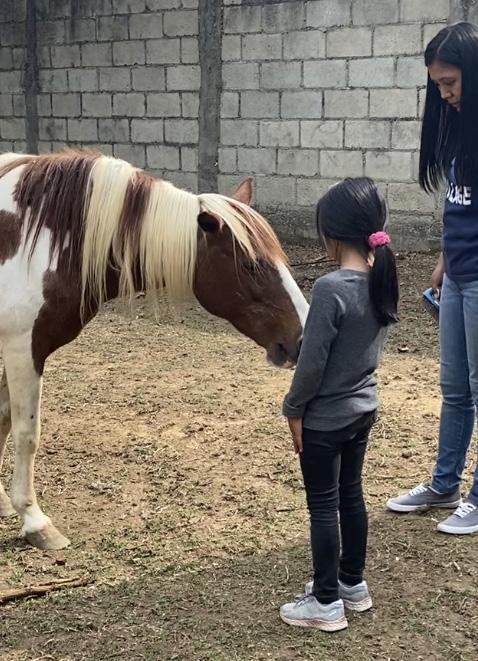
4 minute read
INTERNATIONAL PARTNERS FIND WAYS TO COUNSEL
U N L I K E LY P L AC E S Inter national Partners Find Ways to Counsel
Story by Neisha Roberts
Advertisement
In a general sense, counseling looks like someone meeting with a licensed professional in an office setting for therapy. But what about in the far-reaching parts of the world where that’s just not realistic? It’s a question Lifeline Children’s Services’ (un)adopted ® team mulled over for years. For adoptive and foster parents, Lifeline seeks to inform and build “therapeutic parents” — enabling moms and dads to learn the concepts of counseling that will help bring about healing in a child, explained Whitney White, Lifeline’s International Education Counselor based in Georgia. For (un)adopted, Lifeline’s international strategic orphan care ministry, one goal was to take this same model to international partners in places like Uganda, the Dominican Republic, Colombia, India, and Guatemala.
“It’s not a far stretch, then, to implement these same principles to help equip and train ‘therapeutic caregivers’ — those who serve and care for countless children in homes and ministries around the world,” explained Whitney, who co-wrote Lifeline’s Caregiver Education (CE) curriculum with social worker, Allison Fuqua. CE has been shared dozens of times to train caregivers directly impacting children who have no living relative or come from extremely vulnerable environments. The curriculum equips caregivers with the skills needed to produce an environment of healing for the children in their care. The 10 modules, which include lessons on attachment, trauma, self-awareness, and making good decisions, help “get below the surface with children and help them know who they are individually and how they interact with the world around them.” Since its launch, CE has been shared in 12+ countries including the DR and Guatemala, to help support the therapeutic practices these (un)adopted partners have already set in place. For example, at La Baliza, a Niños de la Luz boys’ home in the DR, counseling often looks like “casual conversations while doing our daily activities with the kids,” explained Jon Haslett, who founded Niños in 1994. “We’ve found that being heard by someone who truly cares for them seems to do a lot of healing in and of itself. … Using a strengths/needs therapy concept has helped our staff handle difficult moments with the kids with compassion and more of a positive approach.” Jon and his team also use forms of Cognitive Behavioral Therapy, but with a spiritual emphasis, he shared, teaching the children to look to Scripture and to Christ for truth and peace. Although most of the counseling that takes place at La Baliza is more organic in nature, the staff do have
deliberate sessions with the boys, either as a group or individually, to counsel them on various matters. “We believe these times are vital for kids coming from difficult situations, mostly because they have been neglected, unheard and the majority have been completely rejected by loved ones and society,” Jon said. “These counseling methods help us bond with the kids and help them feel safe. … Something comes alive in them when they experience someone truly caring for them, and when they learn about a God that loves them unconditionally.” In Guatemala, at Village of Hope (VOH), the staff cares for children coming from sexual abuse and those who are HIV+. Four fulltime Christian psychologists work with the children, especially those with post-traumatic stress disorder (PTSD), by using Eye Movement Desensitization and Reprocessing, a treatment designed to alleviate the distress associated with traumatic memories. The caregivers also utilize art therapy, play therapy, and horse therapy. Amy Block, who founded VOH with her husband several years ago, said, “We have found that different children find healing through different therapies. … We believe counseling helps the children by putting a name to their feelings and working through past trauma.” The children who stay at VOH often do not have a living relative, or if they do, the family members are sometimes the very people who have produced trauma. “We get the privilege of being in a child’s life and loving her where she is. We try to be an example of the Lord’s unconditional love and live out the gospel in front of them, support them, and help point them toward the only One who will heal them fully — Jesus.” (un)adopted is honored to walk alongside partners like VOH and La Baliza, where the leaders are already making gospel-saturated efforts to help children heal. And through CE, Whitney shared, Lifeline is able to see even more caregivers “from any background, not just those with degrees and licensures in counseling,” be equipped and empowered to create safe and healing environments for children in their care. “It’s really the same intention of what we do in a counseling office, just on a much wider scale.” To learn more about (un)adopted and find ways you can join the story of ministering to children who will never see adoption, visit
lifelinechild.org/unadopted.

Village of Hope, Guatemala

La Baliza, Dominican Republic





